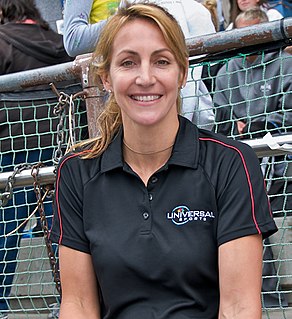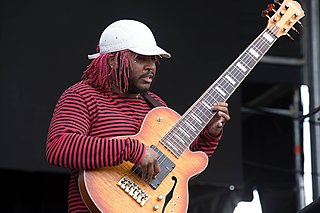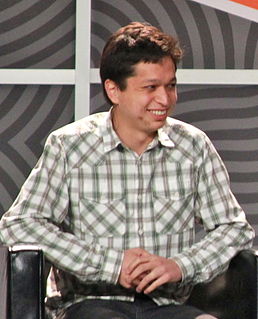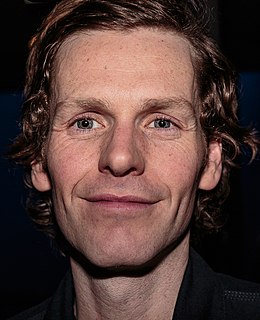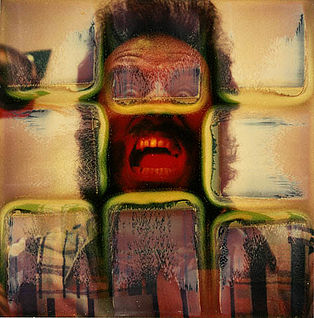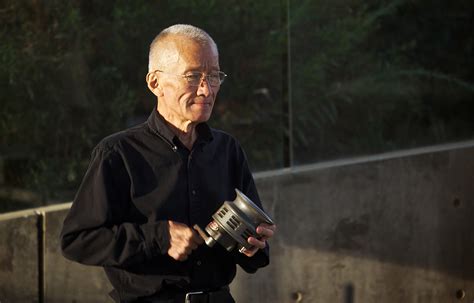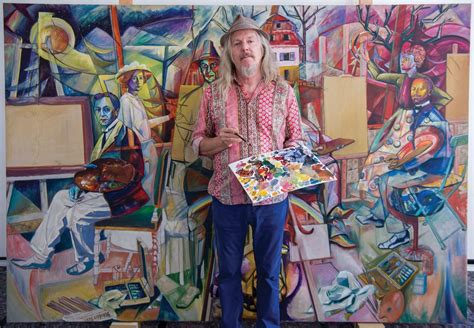A Quote by Adrian Marcel
I think that I work hard to make my music as a diary for new generations who find out about it years later. They can go through the history and see a trail. It's straight and narrow, you can see the growth and understand that I'm not afraid to give you honesty and be honest about anything that has to do with my story.
Related Quotes
To be a champion, I think you have to see the big picture. It's not about winning and losing; it's about every day hard work and about thriving on a challenge. It's about embracing the pain that you'll experience at the end of a race and not being afraid. I think people think too hard and get afraid of a certain challenge.
One of the hard parts about building a service that you use yourself is that it's easy to forget what it was like the very first time someone signs up. Every once in a while, I'll create a brand new account and give it a try and see how hard it is to find things that I really love, see if I'm using it or thinking about it differently.
You just have to work really hard and throw everything into it. ... It's really hard to be an artist, and even if you do work really hard, there's no guarantee about anything. There's no advice you can give someone that things will somehow work out, but you can talk to people about how they can make art a big part of their life.
When we're in the story, when we're part of it, we can't know the outcome. It's only later that we think we can see what the story was. But do we ever really know? And does anybody else, perhaps, coming along a little later, does anybody else really care? ... History is written by the survivors, but what is that history? That's the point I was trying to make just now. We don't know what the story is when we're in it, and even after we tell it we're not sure. Because the story doesn't end.
When the next generation of content is developed, we have to think in a totally different way. Think about it more symbolically. The main story that you see on the TV screen is maybe like the living room of a house. But there are various other rooms in this house that you will otherwise never see. But if you use the Internet, you find out what's in the attic. And if you use the cell phone, you find out what's on the first floor. And on another medium, you find out what's in the cellar.
Thinking about making a love story without music was really frightening, Sciamma admitted. Because every love story we know, we think about 'Titanic' we think about the music, we think about 'Gone with the Wind' we think about the music, we think about 'E.T.' we think about the music, and every love story has its own tune, 'That's our song.'
I'm looking back at what I did and how it works. In a sense I'm waiting to see how people will respond. I'm waiting to see how you respond, without asking me to tell you what I think about it, because it is your job to give me an idea of how you go about thinking about this work. And if it's too absurd then, you know, I'll kick you out!
At the beginning, I felt sort of reluctant about my music from my past. But in the last couple of years, I felt good about what I did in the past. The way I see my work, time passes from the time I performed or recorded a work. When I look at it now, 25 years or 30 years ago, if I see that it has value today, I will agree to release it.
Every philharmonic orchestra merely interprets the composer. My goal was to create new music by that composer. In doing so, I wanted to find the painter's creative center and become familiar with it, so that I could see through his eyes how his paintings came about and, of course, see the new picture I was painting through his eyes - before I even painted it.

